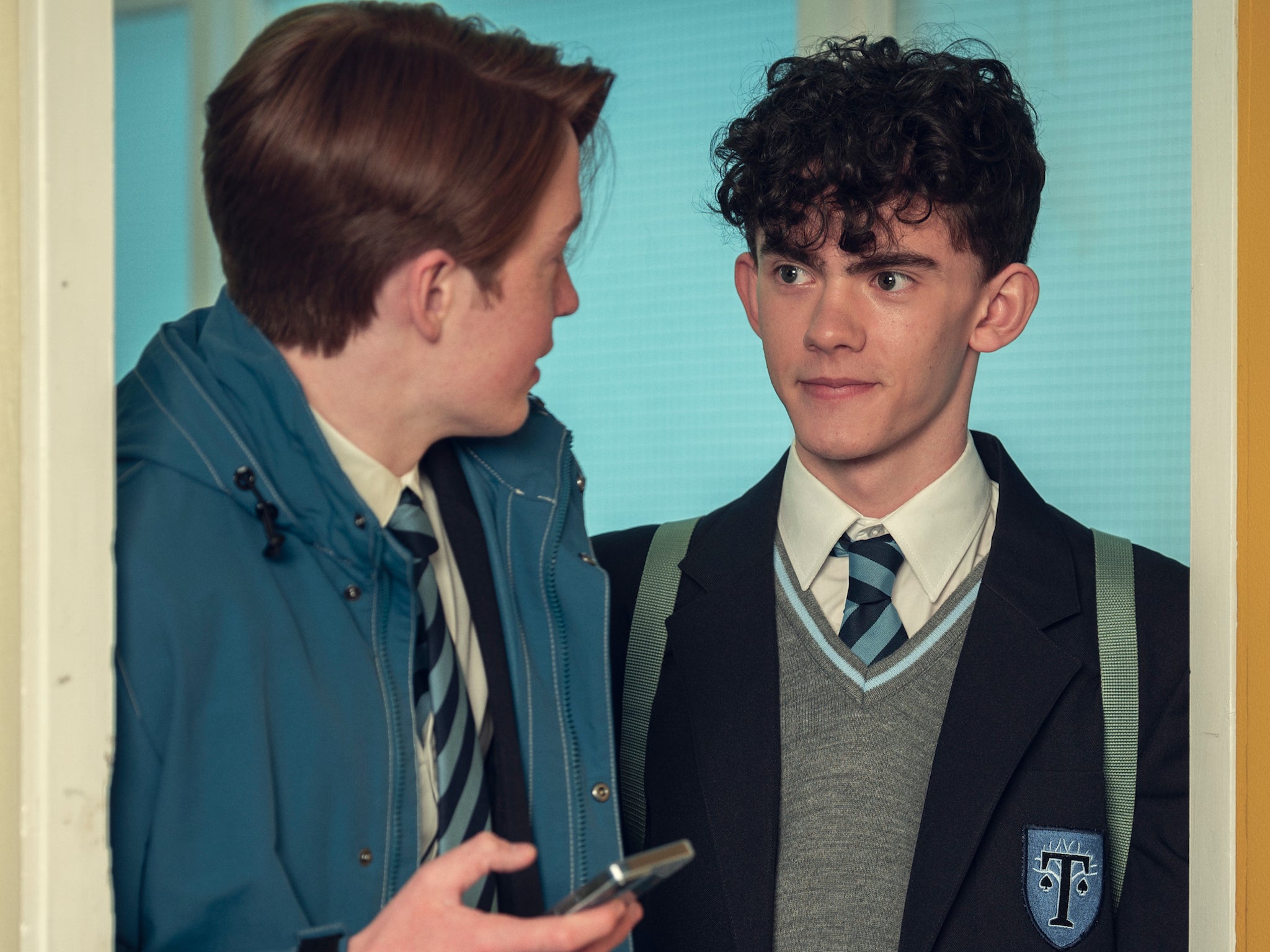Heartstopper is a win for queer people – for once, TV isn’t all about our trauma
This series will go down in queer history for being the first show to help positively represent a full spectrum of LGBTQIA+ identities, in a traditional secondary school environment


“Boy meets boy” is one of the most recognisable taglines from the Heartstopper series.
It draws you in: from the moment they utter a shy “hi” while sitting next to each other in class, we begin to follow the romance of Nick Nelson and Charlie Spring. Even this small moment is important. It shows how this series will go down in queer history for being the first show to help positively represent a full spectrum of LGBTQIA+ identities, in a traditional secondary school environment.
The show centres around Charlie, an openly gay year 10 pupil, who starts the show being the secret romantic interest of the closeted year 11, Ben Hope. Forced to hide their relationship, Charlie clings to the idea of what could be, rather than the reality of what is – an experience many queer people can relate to.
He becomes accustomed to accepting the bare minimum in exchange for his self-worth, which soon leads him to breaking point. However, that’s precisely when Nick enters and treats him with the kindness and compassion his character so desperately deserves.
I won’t spoil the plot, but suffice to say the authenticity of the relationship between Ben and Charlie is a massive TV shift – a way to help to address the level of internalised homophobia that comes from underrepresented identities.
We’re not used to seeing our lives played out on screen, yet Ben’s character goes through a period most queer people have been through too, at some point; the internal battle of desire and shame that comes with exploring your sexuality.
And, while his character does possess some negative attributes, we still feel sympathy for him and the unhappiness he faces being stuck in a group of bullies as he wrestles with his identity.
So how has Alice Oseman, the creator of the Heartstopper franchise, managed to create such a beguiling story? Many shows before this have either been laser-focused on the trauma of the queer experience, or over-glamorising queer relationships with an unrealistic plot. Heartstopper has somehow found the perfect balance – a way to accurately present LGBTQ+ lives on screen, and a way to help young queer people feel safe and at home with who they are.
The timing of its release also provides a beacon of hope that many of us desperately needed. With the passing of the “Don’t Say Gay” Bill in Florida, and the UK government refusing to include trans people in the ban on conversion therapy, being LGBTQ+ has started to feel like more of an uphill battle in recent years.
In the show, a big middle finger to the “Don’t Say Gay” Bill comes via the wonderful Mr Ajayi, an openly queer art teacher, with whom Charlie spends a lot of time for support.
Mr Ajayi’s consistent wearing of a pride pin helps to subtly reinforce the importance of representation, and is exactly what is needed in schools. Narratives like these are going to help not only educate others into understanding the queer experience a little more, but also help give us the boost we need to keep fighting.
To keep up to speed with all the latest opinions and comment sign up to our free weekly Voices Dispatches newsletter by clicking here
One of the best parts of the show is how the queer experience is represented without exaggeration. Elle Argent (portrayed by Yasmin Finney) has recently moved schools when she is introduced to us, and we are subtly made aware that she is trans.
We don’t witness the extreme bullying of either Elle or Charlie, and we also don’t witness either of their coming out experiences. Instead, we focus on them just being their authentic queer selves, pushing the bullies into the background; a beautiful way of showing queer people that we are so much more than the sum of our parts.
Put simply: Heartstopper has managed to shine a light on the joy, love and happiness that can come with being queer. With any luck, it will help a lot of people accept who they are truly born to be.
Join our commenting forum
Join thought-provoking conversations, follow other Independent readers and see their replies
Comments
Bookmark popover
Removed from bookmarks